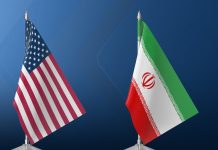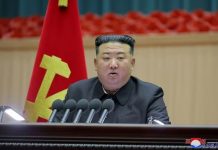DM MONITORING
TUNIS: “Vote? What elections?” said shop assistant Emna, while taking a break with her friend outside the health food shop she works at.
They look at each other and shake their heads, “how can we have elections when there’s no milk, no butter, no sugar no money? Like many Tunisians, Emna sees these elections as a distraction from solving what she sees as the real issue at hand, the country’s ongoing economic crisis.
The lack of enthusiasm on the streets has not dampened the mood of President Kais Saied’s supporters. That enthusiasm is necessary – most of the opposition will be boycotting Saturday’s elections, which will vote in a new parliament after the previous opposition-dominated one was suspended and removed by Saied in July 2021.
The Tunisian opposition sees the elections as the latest step in what they describe as a “coup” carried out by Saied, taking the country back to the dictatorial system it had overthrown in the 2011 revolution, which inspired the Arab Spring uprisings across the region.
Speaking to Al Jazeera, Sayida Ounissi, one of the former members of the dissolved parliament, representing the Islamist Ennahdha party, dismisses the politicians backing Saied.
“[They’re] very comfortable with authoritarianism and tyranny, and very uncomfortable with pluralism and democracy,” said Ounissi.
Saied’s moves over the past 18 months, which also involved sacking the government and replacing it with one that supports him, have seen several of Ennadha’s leaders arrested. Its longtime leader, and the former speaker of parliament, Rached Ghannouchi, has been interrogated several times by the country’s counterterrorism unit.
Ghannouchi has dismissed the moves against him and his party as “tyranny” and evidence of what they call Saied’s “coup”, a characterisation the president rejects.
Ounissi described the past year as a “living hell” for Ennahdha supporters. “It feels like the party has been effectively criminalised, we can’t speak,” Ounissi said, before adding that many party members had been “traumatised and afraid”.Bottom of Form
“Many [of the Ennahdha party members] would rather live overseas than live in an authoritarian state,” Ounissi said.
While Ounissi believes the next steps involve educating Tunisians further about democracy to entrench it within society, her fellow Ennahdha member, and former Prime Minister Ali Laarayedh believes that the response needs to be more radical.
“Saied has dismantled all the democratic institutions that were built after 2011, we are back to where we were under the dictatorship of [former President Zine El Abidine] Ben Ali,” he said.





